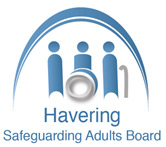Discriminatory Abuse

Discriminatory abuse is the unequal treatment of an individual based on disability, race, gender and gender reassignment, marriage and civil partnership, pregnancy and maternity, race, religion and belief, age, sex or sexual orientation.
The Social Care Institute of Excellence (SCIE) list the following types of discriminatory abuse:
- Unequal treatment based on age, disability, gender reassignment, marriage and civil partnership, pregnancy and maternity, race, religion and belief, sex or sexual orientation (known as ‘protected characteristics’ under the Equality Act 2010)
- Verbal abuse, derogatory remarks or inappropriate use of language related to a protected characteristic
- Denying access to communication aids, not allowing access to an interpreter, signer or lip-reader
- Harassment or deliberate exclusion on the grounds of a protected characteristic
- Denying basic rights to healthcare, education, employment and criminal justice relating to a protected characteristic
- Substandard service provision relating to a protected characteristic
Ben’s Story
Ben’s Story is a short film about a young man with disabilities who had employed a personal assistant in order to remain independent and live at home. However, the personal assistant came to dominate, control and degrade Ben. Once Ben realised he was being abused he told a friend what was happening and was advised to contact the authorities to tell them what was happening to him. With the right help he was able to rebuild his confidence and trust in others and now has new friends, hobbies and interests. Thank you to East Sussex County Council for the video below
Hate crime
What is Hate Crime?
Hate Incidents and Hate Crimes are acts of violence or hostility directed at people
because of who they are or who someone thinks they are.
The CPS defines something as a Hate Incident if the victim or anyone else thinks it
was motivated by hostility or prejudice based on one of the following things.
- Disability
- Race
- Religion
- Transgender Identity
- Sexual Orientation
This means that if you believe something is a hate incident it should be recorded
as such by the person you are reporting it to.
Call 999 if you’re reporting a crime that is in progress or if someone is in immediate danger. If the crime isn’t an emergency, call 101. You can also report hate crime online.
